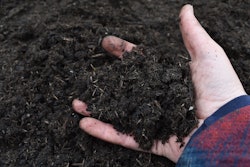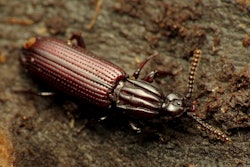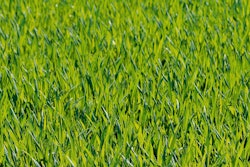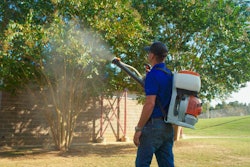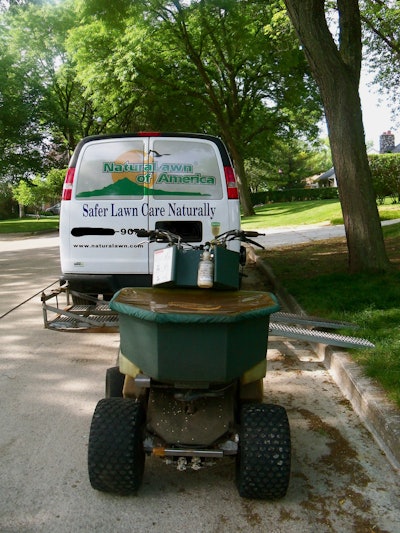
Many traditional lawn care providers now offer some kind of organic-based program. At the same time, there is an increasing number of contractors that are organic-exclusive. Everyone is trying to tap into an evolving market that is only expected to grow over time.
"I would say that organic lawn care has about 3-4% of the total lawn care market in the U.S.," says Tom Kelly, president and CEO of Natural Technologies and BeeSafe Organic Lawn Care. "The market has grown over the past few years, though. But this is what's most important: When you look at the research, 50% of lawn care customers say they'd like to go with an organic program, but want to be certain that it will be more effective."
So the question for both consumers and contractors is whether or not organic lawn care is more effective, or at least as effective, as traditional lawn care. Opinions vary, but many contractors say they have enough field data to suggest that it can be—just in a different way.
Change your thinking
The Northeast Organic Farming Association (NOFA) says there are four main goals when switching to an organic-based lawn care program:
- Maintain soil health
- Eliminate use of synthetic pesticides and fertilizers
- Increase landscape diversity
- Improve the health and well-being of the people and web of life in your care
Soil health is the key. According to the NOFA standards manual, soil tests and site analysis allow lawn care professionals to implement practices that improve soil vitality—and thereby enable the soil to support a vigorous plant community, i.e. turfgrass. NOFA says this “feed the soil” principle is used to benefit plant health, not artificially stimulate plant growth. Thus, unnecessary applications of any fertilizer or soil amendment are to be avoided.
In other words, the traditional model of "feed it, spray it, kill it", perhaps, could be replaced by a model of "feed it as necessary, nurture it". To that end, the overarching goal of an organic-based approach is to focus on all of the steps in a year-long program, collectively, to help change site conditions in such a way that leaves the site less susceptible to weed, disease or insect infestation—and less in need of control products such as pesticides.
"You can't think in terms of products," BeeSafe's Kelly says. "You have to look at it as a year-long program." BeeSafe builds its program around its proprietary organic-based products. "Each step is based on the previous step being done right, and also what step is coming next," Kelly adds.
The BeeSafe business model is unique, Kelly points out. It's a lot like a franchise, but is legally known as a dealer network. That's because there are proprietary products only available to BeeSafe authorized dealers/applicators. Those products are made available by Natural Technologies, of which BeeSafe is a division.
Products, programs and performance
One thing Kelly can say about BeeSafe's top-secret, proprietary products is that they incorporate soil-improving microbes. "All of our products are biologically enhanced," Kelly explains. "They are laboratory-created compost teas. They are pretty complex and very different than what the typical contractor will find at his regular landscape supplier."
NOFA says compost is an integral element of an organic-based, "nurture it" approach. Compost increases microbial activity, supplies nutrients, improves soil structure, reduces run-off and compaction, increases water and nutrient retention, increases root growth, helps prevent and suppress plant diseases, detoxifies certain pesticides, and inactivates or kills potential human pathogens.
Philip Germann, co-owner of Green Lawn Specialists in Lewis Center, OH, says his company has had great success in selling compost topdressing as an add-on fall service, typically with aeration and seeding. "Ohio State University has discovered that there are no shortcuts if you want to improve the organic matter in your soil; you must add bulk material," Germann says. "We use a 1/4-inch layer, which works out to about 1 cubic yard per thousand square feet."
Contractor Zack Kline is the owner of A.I.R., an eco-friendly land management company that stands for atmosphere-improvement-renewal. The company is based in Rockville, MD, in Montgomery County. "We've been growing via word of mouth and people searching for natural, organic lawn care online," Kline relates. "We've also received a lot of attention because of our support for Bill 52-14 in Montgomery County." Bill 52-14 moves to ban the use of pesticides on both county-owned and private lawns over the next two years.
Kline is an accredited land care expert through NOFA's Organic Land Care Accreditation Program. He says it's important to make a distinction between organic-based and natural/organic, which is what his company offers. "Organic-based/bridge fertilizer products contain chemical sources of nitrogen and phosphorus combined with reconstituted sewer sludge (biosolids)," Kline explains. "Chicken manure is an organic product that, without added beneficial microbes and nutrients, will simply not work very well."
Kline uses the following products:
- Fertility – Espoma, ICT Organics, San Jacinto Environmental Supplies
- Herbicides – Avenger, Halo
- Fungicides – Actinovate, ZeroTol
"Biochar, compost, compost tea and gypsum are other essential parts of our overall natural/organic program," Kline adds. "Also, although it is not a product, mowing at the right height and frequency is a key component. We mow higher and not as frequently to encourage deeper root growth and ultimately fewer weeds, pests and insects."
Kline points out that when first transitioning a lawn to an organic/natural program, he does utilize a very small amount of organic pesticides. "But over time, you don't need them anymore because of the strong health of the soil," he adds.
Green Lawn Specialists is one company that doesn't think you can entirely move away from pesticides. "Organic herbicides simply do not work—at all," Germann states. "I like organic fertilizer, but the cost is so high and additional benefit so low that it makes little sense. We do use it, though, and our early-fall fertilizer is 50% organic now."
Pacific Landscapes in Sebastopol, CA, started experimenting with an organic soil fertility management program in 2009, and now offers the program to each new client it signs on. The company has found that healthier soil not only promotes healthier turf, but also cuts water usage in half.
“Our most successful organic lawn care function has been to perform core aeration treatments followed with applications of high-quality compost," says Darryl Orr, company owner. Pacific Landscapes also applies compost tea. "It’s a lot less labor-intensive than spreading compost, but provides some of the same benefits," Orr points out.
Like Germann, however, one issue Orr has come across is that the organic herbicides they’ve tried have not been successful. As a result, Pacific Landscapes will use pesticides on a limited, as needed basis.
Kline, on the other hand, is confident in the efficacy of organic herbicides. "For a contractor looking to offer a natural, soil health-based program, I recommend contacting Barry Draycott at Tech Terra Environmental to learn how to get started," Kline advises.
"There are a ton of different products on the market, from petroleum-based to ester-based," adds contractor Mark Tavares. "There is a new product that contains white mineral oil but uses very little active ingredient to achieve great results. You need to know the background of a product, what’s in it and how it works. Instead of just going and picking a product off the shelf and spraying it, do your homework."
Tavares and Alex Kepner became friends while attending Virginia Tech. Both of them had worked as lawn care technicians for traditional lawn care companies. They joined forces last year and started a new company, Project Green in Richmond, VA. The company offers a 100% organic program along with a hybrid program that reduces usage of synthetic products by over 50%.
More contractors tuning in
According to recent Green Industry Pros reader data, roughly half of landscape contractors apply fertilizer and/or pesticides. Two-thirds of those contractors say business is growing. At the same time, roughly 40% of contractors say they now offer an organic-based lawn care service. Roughly half say that business is growing. In other words, it's a good time to be in the lawn care business—and a pretty darn good time to be in the organic lawn care business specifically.
BeeSafe Organic Lawn Care has been seeing a spike in contractor interest firsthand. As of late-December, well over 100 dealers/contractors were up and running in 34 states. "This has really jumped over the past year or two," Kelly points out. "Things like what happened in Montgomery County, MD, are going on all around the country. So it's not just the forward-thinking contractor who's interested in organic methods. Many times, it's simply a contractor looking to expand his or her business by adding an organic-based service."





